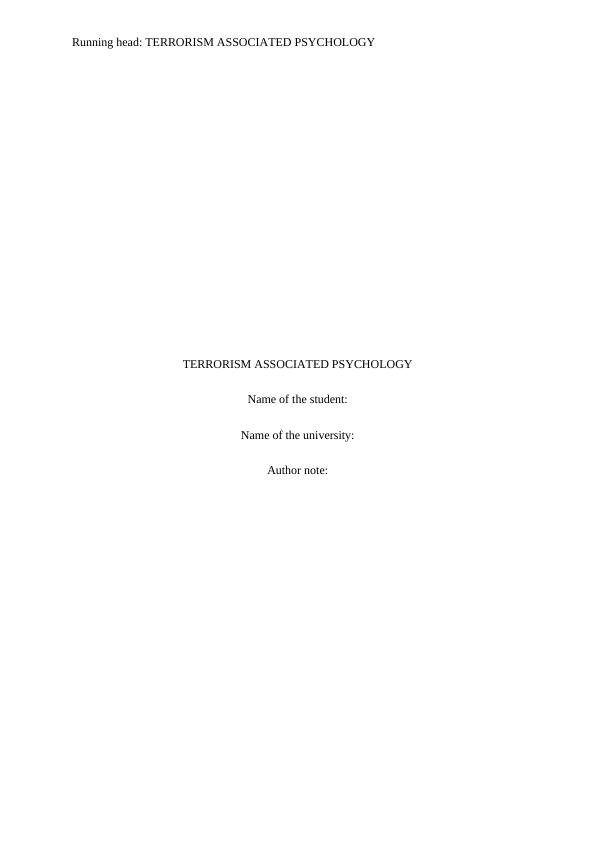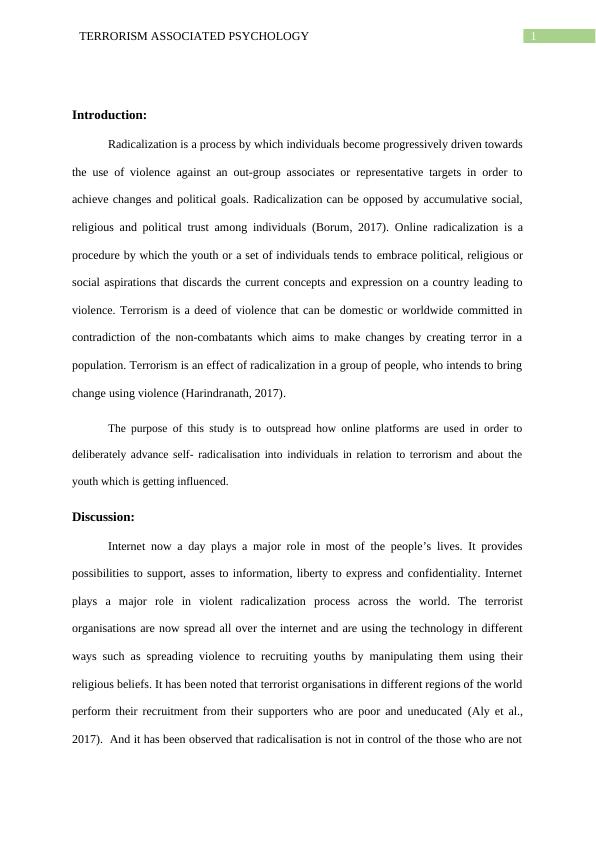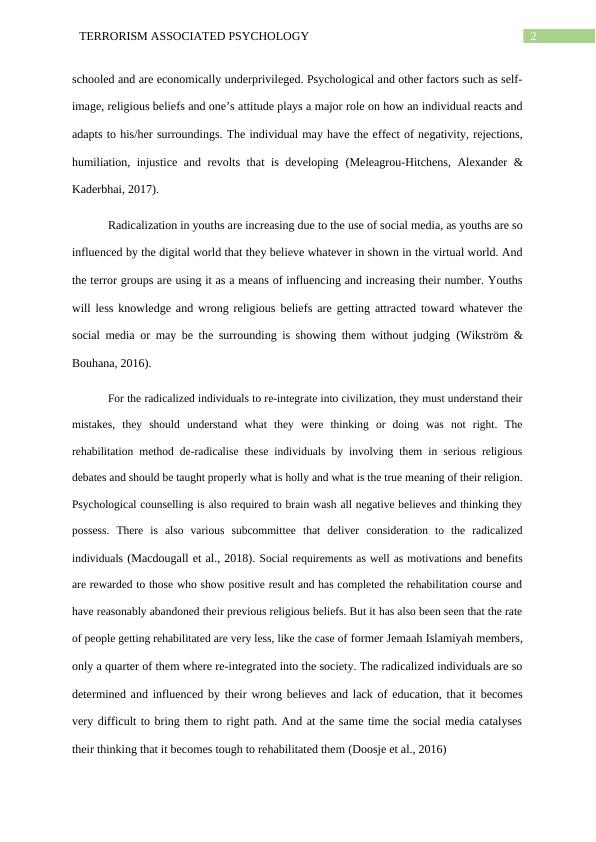Terrorism Associated Psychology
7 Pages1529 Words176 Views
Added on 2023-04-22
About This Document
This study discusses the role of online platforms in advancing self-radicalisation in individuals in relation to terrorism and the influence on youth. It also highlights the importance of education and correct religious values in preventing radicalisation and terrorism. The article cites various studies and researches to support the discussion.
Terrorism Associated Psychology
Added on 2023-04-22
ShareRelated Documents
End of preview
Want to access all the pages? Upload your documents or become a member.
Role of IT in Controlling Radicalisation
|4
|961
|103
Impact of Social Media on Contemporary Terrorism and Counterterrorism
|12
|3253
|442
Factor of Radicalism Boko Haram
|8
|2130
|28
Radical Extremism
|14
|5855
|74
Terror as Crime Essay and Case Study
|24
|9434
|224
Religious Terrorism and Secular Terrorism: A Comparison
|16
|5853
|180



